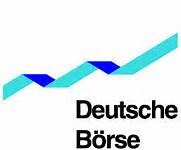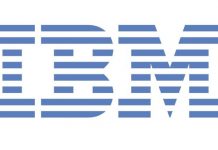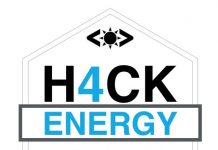Blockchain is emerging as a potentially disruptive force capable of transforming the financial services industry. Today, all major banks and financial institutions are involved in blockchain technology one way or another: some are partnering with blockchain startups and organizing hackathons, others are forming blockchain-dedicated teams and opening innovation labs.
As interest in blockchain grows within the banking and financial industry, professional services and consulting firms are expanding their offering to relevant services in hopes to keep up with the blockchain craze.
At this point, all major consultancy firms including Deloitte, PwC, Accenture, Ernest & Young (EY), KPMG, Capgemini and IBM, are providing blockchain-related advisory services. Some, however, have taken their commitment to blockchain to the next level.
Today, we take a look at who is doing what.
Deloitte
Deloitte has been one of the most active in the space, unveiling in May its involvement in 20 blockchain-related prototypes. The firm said it sought to provide its global financial institution clientele with new, innovative technological capabilities.
The prototypes are said to cover a multitude of uses such as digital identity, digital banking, cross-border payments, and loyalty and rewards, as well as in the investment management and insurance sectors.
They are being developed in collaboration with prominent blockchain companies including Consensus Systems (ConsenSys), BlockCypher, Bloq, Loyyal (formerly known as Ribbit.me) and the Stellar Development Foundation.
With ConsenSys, Deloitte is exploring the use of blockchain technology for a new suite of digital banking solutions for the financial services industry; while the collaboration with Bloq focuses on delivering “blockchain-enabled technology designed to improve integrity and security, and reduce costs in the US$1.1 trillion insurance industry.”
Deloitte also has its own blockchain lab in Dublin where a dedicated team is building proof-of-concepts and functioning prototypes.
Deloitte’s interest in blockchain technology can be traced back in 2014, but the firm began getting seriously involved in mid-2015 when it launched Rubix, a software platform that allows applications to be built on top of blockchain infrastructure. Simultaneously, Deloitte unveiled the Deloitte Cryptocurrency Community (DCC), an internal group of about 100 staff members in 12 countries focused on exploring the potential of the technology for their banking and retail clients.
Ernest & Young
EY has remained relatively timid and quiet. EY mainly provides consultancy services to banks, clearing houses and exchanges that are interested in learning more about blockchain technology and distributed ledgers.
In May, EY joined the Post-Trade Distributed Ledger (PTDL) Group, a coalition of nearly 50 financial institutions and market infrastructure players dedicated to exploring the use of blockchain technology in the post-trade industry.
In France, EY has sought out the help of the startup community for the development of new blockchain solutions. EY, a partner of the Viva Technology summit in Paris, hosted two blockchain-focused open innovation challenges during the three-day conference. The first challenge, called ‘Blockchain: automated certification,’ sought to use blockchain technology to automate financial statement verification and certification. The second challenge, called ‘Blockchain for tax lawyers,’ aimed at creating a blockchain solution to certify information and produce contracts automatically.
Capgemini
French professional services firm Capgemini began expressing interest in blockchain technology in September 2015 when it announced the launch of SRTCoin (Satoshi Roundtable Coin), a cryptocurrency it built with the Counterparty Platform to test and learn about cryptocurrencies.
Today, Capgemini provides corporates with a range of consulting and technology services including feasibility studies, business case assessments, operating model design, advisory services on systems architecture and full-scale systems integration.
The firm also organizes blockchain applications workshop and plans to have 100 blockchain specialists globally in its financial services division by the end of 2016 to meet “pressing demands for fintech solutions in financial services.”
Most recently, Capgemini teamed up with ascribe to develop a blockchain database solution for a reward system that would combine loyalty points from various programs. The solution would track processed transactions in real-time and allow for instant redemption.
PricewaterhouseCoopers
Earlier this year, PwC recruited 15 technology specialists to exploit and commercialize blockchain. Stationed in PwC’s Belfast office, the new blockchain team is expected to grow to over 40 digital and technology specialists during 2016.
Similarly to its competitors, the firm said it sought to meet growing demand from clients for blockchain and fintech solutions.
PwC’s blockchain solution portfolio comprises a suite of 12 services aimed at spanning the cycle of analysis ongoing at major financial firms. As part of its blockchain offering, PwC has partnered with blockchain system builders and ventures Blockstream, Digital Asset Holdings and Eris Industries.
Separately, PwC is working with Z/Yen to research on the potential of blockchain technology in wholesale insurance. The research and a working proof-of-concept prototype are expected to be launched some time this month.
In June, PwC unveiled a new partnership with the Bank of England to develop a proof-of-concept to explore the potential opportunities and challenges of using distributed ledger technology for payments settlement.
Most recently, the firm teamed up with Chinese consultancy BitSE to expand its reach and provide blockchain-related professional services for the Asia-Pacific market.
Accenture
Accenture has remained rather discreet when it comes to its own blockchain developments. Although no official announcement has been made, Accenture’s recent acquisition of Formicary has made industry observers suspecting that the firm has been working on a blockchain financial services platform for online retailers.
On another front, Accenture is involved in the startup ecosystem through its Fintech Innovation Lab, a 12-week acceleration program the firm organizes every year in New York, London and Hong Kong.
In January, Nivaura (formerly known as Crowdaura) was selected for Accenture’s Fintech Innovation Lab in London, becoming the second blockchain startup to join the program after Hong Kong-based bitcoin remittance service Bitspark joined the 2015 Asia-Pacific class. Nivaura builds blockchain-supported digital platforms for the capital markets.
Accenture, along with IBM, is one of the 30 founding members of the Hyperledger Project, an initiative triggered in December 2015, aimed at developing a cross-industry open standard for distributed ledgers.
Accenture introduced its blockchain practice in February, announcing simultaneously a partnership with Digital Asset Holdings to help financial institutions implement blockchain-related solutions.











